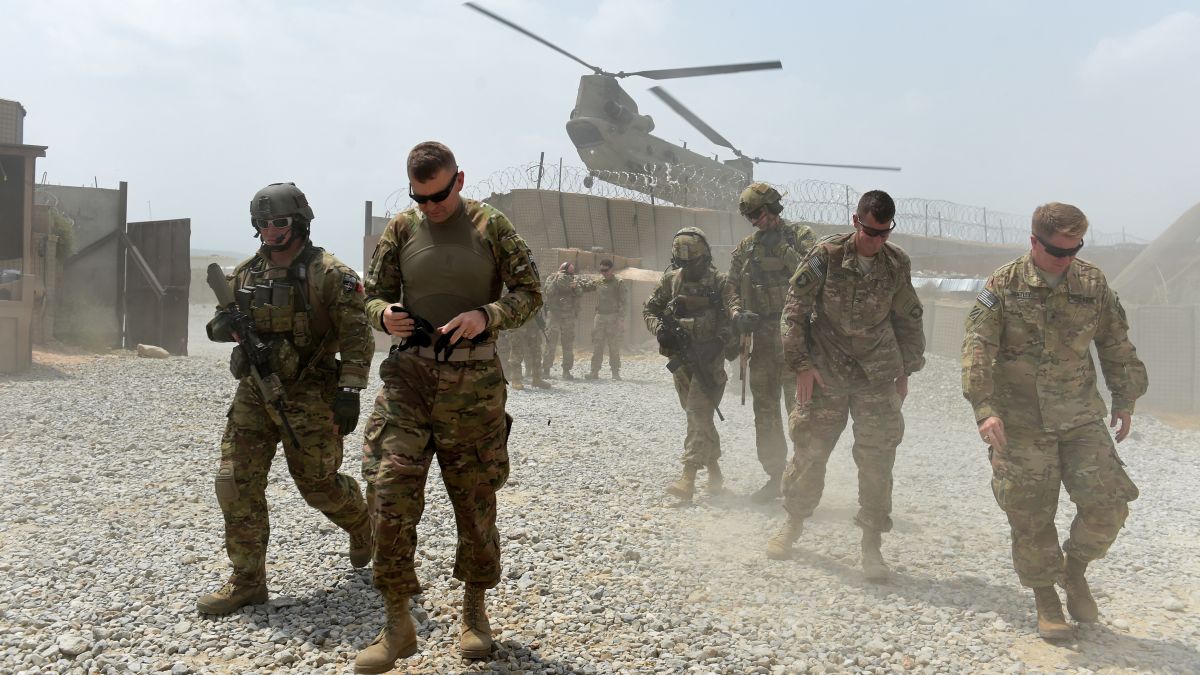

By Air Commodore (R) Khalid Iqbal. He is former Assistant Chief of Air Staff of Pakistan Air Force. He can be reached at khalid3408@gmail.com
18 February 2021
In all probability, the US has taken an in-principle decision to renege upon its February 29, 2020 agreement with Taliban. Knowing well that withdrawal of occupation forces is the centre of gravity of the deal, the US is trying to stir up a hornets’ nest. And for this, she is inventing “Ifs and Buts” of the agreement to hide behind. “The violence is too high in Afghanistan. That’s the bottom line,” said Pentagon spokesman John Kirby on February 12. Hence, Pentagon won’t commit to Afghanistan troop withdrawal by May. So far Taliban are singularly glued to withdrawal of occupation forces.
Biden administration appears out rightly abandoning the cause of Afghan peace process. While the US government is looking for room to manoeuvre within the language of the agreement, American think tank industry is in an overdrive to provide the pretexts. Marvin Weinbaum, director of Afghanistan and Pakistan studies at the Middle East Institute said, “They agreed not to shoot at us on our way out…That’s the only part of the agreement that they’ve kept.” “It was an agreement which was faulty because it committed the US to provably irrevocable actions, and the Taliban only committed themselves to promises”, Marvin added.
If there was ever to be a third party forensic audit of violations by all parties to the US-Taliban agreement including the provisions of US- Afghan government MOU, score of the US and Afghan sides will be much higher than Taliban, who have merely been reacting to the violations by the other two parties.
The United States needs to understand that peace would only begin to evolve in Afghanistan once the occupation forces complete their exit. A recent World Bank report is quite telling about state of conflict in Afghanistan, “Conflict is ongoing, and 2019 was the sixth year in a row when civilian causalities in Afghanistan exceeded 10,000. The displacement crisis persists, driven by intensified government and Taliban operations in the context of political negotiations”.
Oren Liebermann, Zachary Cohen and Kylie Atwood reported for the CNN on February 14 under the caption “Biden has no good options on Afghanistan with deadline for troop withdrawal looming” that: “Experts and US officials told CNN there are no good options available and the best hope is to avert ‘catastrophe.’”
Obama era three pronged transition strategy—political, military and economic— has ended up nowhere. As there is nothing to right back home, the US leadership does not like to talk about it—not even US-Afghanistan Bilateral Security Agreement of 2014.
About the much touted economic transition, an October 2020 World Bank assessment has it that: “The Afghan economy has effectively imploded under the strain of war, Covid-19, misgovernment, and corruption”. “The basic needs poverty rate was 55 percent at the time of the last household survey (2016/17) and is expected to have worsened after the COVID-19 pandemic that hugely impacted the living condition of households. The economy is expected to contract by up to five percent in 2020”. “Additional substantial downside risks remain, including political instability, deterioration of security conditions, premature reduction in aid flows, and further adverse regional economic or political developments”.
In its February 12 meeting, the US National Security Council (NSC) has zeroed on to two major items: A “responsible conclusion” to the conflict, through end of ongoing violence and by evolving a “stable Afghan government”; and, safeguarding “National interests” and preventing the country from becoming an ISIS-style caliphate or the base from which a large attack is launched against the US”. It’s a tall talk even though the first goal is too broad and too subjective while the second goal has somehow been made limited to major attacks against the US only, hence the responsibility of ensuring that Afghan soil is not used for major terror attacks against the US allies stands abdicated. Prevention of emergence of ISIS-style caliphate is another additive. Emergence of an actual or a false flag caliphate could giving the US a perpetual pretext to keep its troops holed-in in Afghanistan for an indefinite period.
Biden administration is hardly left with any tenable options that could lead towards a win-win situation. Afghanistan’s situation is heading back to square one. Shooting of occupation troops could begin as soon as the US intent to keep its troops in Afghanistan beyond May is formally announced; except if such extension is time bound and benchmark regulated, with Taliban’s concurrence.
Disclaimer: The views expressed in the article are of the author and do not necessarily represent the institute’s policy.
